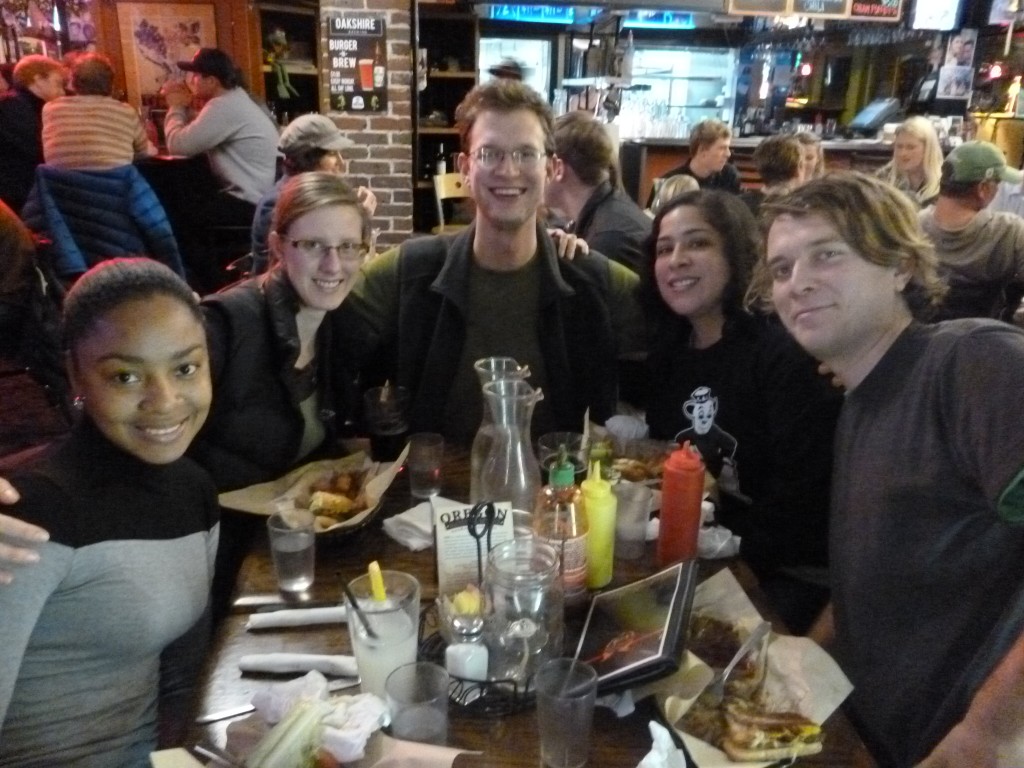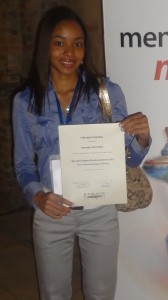The 8th Annual Local Food Connection Conference
 At the beginning of February, my Community Planning Workshop (CPW) team and I got a big, tasty, educational treat. Together with several RARE AmeriCorps food systems participants, we headed out for the 8th Annual Local Food Connection conference to enjoy a day packed with scrumptious local food (thank you farmers and LCC culinary students!) and productive discussions surrounding local food production and distribution in Lane County.
At the beginning of February, my Community Planning Workshop (CPW) team and I got a big, tasty, educational treat. Together with several RARE AmeriCorps food systems participants, we headed out for the 8th Annual Local Food Connection conference to enjoy a day packed with scrumptious local food (thank you farmers and LCC culinary students!) and productive discussions surrounding local food production and distribution in Lane County.
While my team’s primary goal is to assess potential consumer demand for a public market and food hub in the Eugene/Springfield area, we also need to gain a complete understanding of our local food’s journey from the farm to your table. Thanks to the insights of the Lane County farmers, food processors, distributors, vendors, and non-profit allies who attended the Local Food Connection, we now have a much deeper appreciation of our county’s vibrant food system. I, for example, had no idea that UO’s dining services purchases approximately 25% of their produce from local producers such as Hay Bayles! Farm and Sweet Leaf Organic Farm in the summer and many more. What a great way to get nutritious and delicious food to our students!
As we observed sessions on topics ranging from food distribution challenges to commercial kitchens and grocery stores to increasing institutions’, everyday shoppers’, and tourists’ demand for local food, several key themes began to emerge:
 Supply Challenges – Local producers in Lane County have difficulty competing with conventional food supply because their products are less uniform, only available seasonally, processing facilities are limited, and government regulations are cumbersome. Similarly, local distributors struggle with regulations and sometimes lack the scale required to move food around in a cost effective manner.
Supply Challenges – Local producers in Lane County have difficulty competing with conventional food supply because their products are less uniform, only available seasonally, processing facilities are limited, and government regulations are cumbersome. Similarly, local distributors struggle with regulations and sometimes lack the scale required to move food around in a cost effective manner.- Consumption Challenges – Many of the suppliers, distributors, and vendors participating in the conference posed a common question: how do we increase consumer demand for local products? Participants cited buyers’ perception of local food as being expensive as a key barrier to increasing consumption.
- Partnerships might help overcome some of these barriers – By pooling resources, producers and distributors could effectively increase scale and share marketing and educational outreach to consumers.
Could a food hub in Lane County potentially help tackle some of these challenges and provide a venue for some of the solutions conference attendees suggested? Based on our preliminary investigation of the functions other food hubs across the country serve, we certainly think a food hub in Lane County has tremendous potential to support our local food system. As we move forward with our market analysis for the City of Eugene and Lane County, we will draw on the issues raised at the Local Food Connection to guide any recommendations we make.
 About the Author: Aniko Drlik-Muehleck, originally from Berkeley, CA, is now a Master of Community and Regional Planning candidate at the University of Oregon and participated in the Community Service Center’s RARE AmeriCorps Program – Resource Assistance for Rural Environments with the City of Pendleton from 2012-2013. She enjoys gardening and chatting with her chickens.
About the Author: Aniko Drlik-Muehleck, originally from Berkeley, CA, is now a Master of Community and Regional Planning candidate at the University of Oregon and participated in the Community Service Center’s RARE AmeriCorps Program – Resource Assistance for Rural Environments with the City of Pendleton from 2012-2013. She enjoys gardening and chatting with her chickens.


